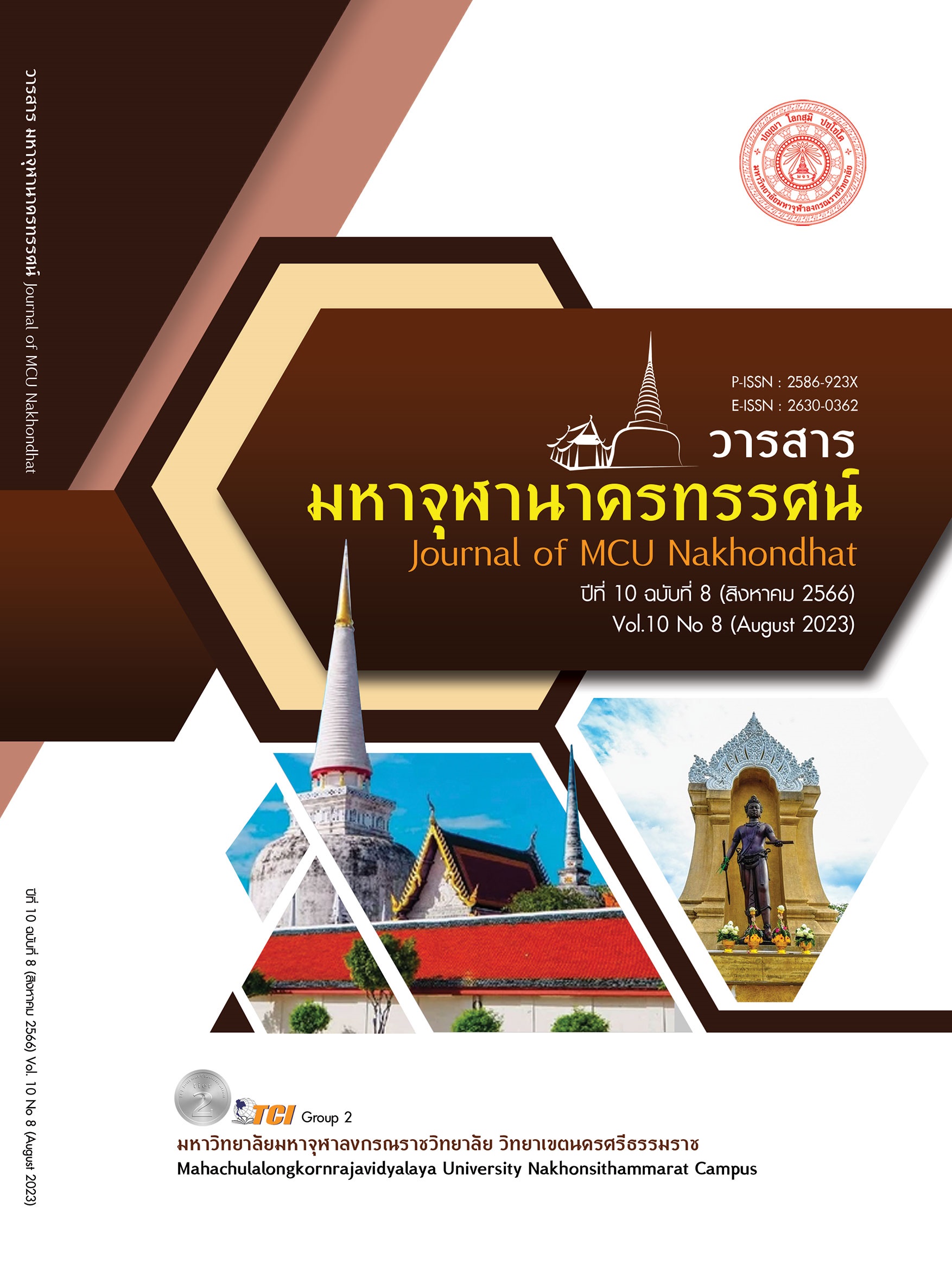MEDICAL SAFE HARBORS FOR PHYSICIANS IN TREATMENT TERMINATION SITUATIONS
Main Article Content
Abstract
The purpose of this article is to study the derivation of an exemption from legal liability for appropriate termination of treatment. which exempts liability for physicians who stop treating patients for reasons legally recognized by law to terminate treatment using a quantitative research model by studying and researching from the document information from the Internet, theses, and court judgments the results showed that Thailand has a law exempting the liability of physicians for termination of treatment for a patient only in the event that the patient has made a letter of intent to refuse treatment in advance. But when studying foreign laws, it was found that there are other cases as well, such as cases where patients express their intention to ask doctors to stop treatment due to suffering from an existing disease. If the patient is in a vegetative state and in the event of a shortage of medical resources Provisions that exempt foreign legal liability. There are specific provisions to protect against civil, criminal and, in some countries, disciplinary liability. There are also criteria for determining the steps before treatment is discontinued. Including a line of judgments to decide that doctors who stop treatment in such cases are not guilty of the law. The fact that the law has exemptions from liability for physicians in various cases would be of great benefit to physicians in their work. But this does not mean that the law exempts medical liability in all cases or conditions. because if the doctor acts dishonestly gross negligence or intended to cause damage, the laws in many countries do not provide protection.
Article Details

This work is licensed under a Creative Commons Attribution-NonCommercial-NoDerivatives 4.0 International License.
References
เกียรติขจร วัจนะสวัสดิ์. (2562). คำอธิบายกฎหมายอาญาภาค1. (พิมพ์ครั้งที่ 1). กรุงเทพมหานคร: กรุงสยาม พับลิชชิ่ง.
นพพล วิทย์วรพงศ์. (2563). รายงานฉบับสมบูรณ์ การตัดสินใจในระยะท้ายของชีวิตกับสังคมไทย. กรุงเทพมหานคร: สำนักงานการวิจัยแห่งชาติ.
นภัส คำนวณ. (2558). ปัญหาทางกฎหมายเกี่ยวกับหน้าที่และจริยธรรมของแพทย์ เมื่อผู้ป่วยใช้สิทธิปฏิเสธการรักษาในวาระสุดท้าย. ใน วิทยานิพนธ์นิติศาสตร์มหาบัณฑิต สาขานิติศาสตร์. มหาวิทยาลัยธุรกิจบัณฑิตย์.
นันทน อินทนนท์. (2544). ปัญหาทางกฎหมายเกี่ยวกับการตายอย่างสงบ. เรียกใช้เมื่อ 22 ธันวาคม 2565 จาก Http://people.su.se//~nain4031/euthanasiaTHAI.html
ภูมิภัทร ศาสตร์ศศิ. (2555). อำนาจกระทำของแพทย์ในการให้ผู้ป่วยตายอย่างสงบในวาระสุดท้ายของชีวิต. ใน วิทยานิพนธ์นิติศาสตร์มหาบัณฑิต สาขานิติศาสตร์. มหาวิทยาลัยธุรกิจบัณฑิตย์.
สุณิชญา ธีรโรจน์วิทย์. (2565). “การใช้สิทธิปฏิเสธการรักษาของผู้ป่วยระยะสุดท้ายตามกฎหมายว่าด้วยสุขภาพแห่งชาติ ศึกษาเปรียบเทียบประเทศไทยและไต้หวัน,”.วารสารรามคำแหงฉบับนิติศาสตร์, 11(1), 18-21.
สุรศักดิ์ ลิขสิทธิ์วัฒนกุล. (2532). “การกระทำโดยจำเป็น เหตุที่ผู้กระทำมีอำนาจกระทำได้ตามกฎหมายอาญาฝรั่งเศส,”. วารสารคณะนิติศาสตร์ธรรมศาสตร์, 17(3), 143-153.
แสวง บุญเฉลิมวภาส. (2558). “การรักษาพยาบาลผู้ป่วยวาระสุดท้าย ความจริงทางการแพทย์กับขอบเขตทางกฎหมาย,”. วารสารกฎหมายสุขภาพและสาธารณสุข, 1(3), 248.
Thaddeus M. (2007). Medical Futility Statutes: No Safe Harbor to Unilaterally Refuse Life-Sustaining Treatment. Retrieved November 15 , 2022, from https://www.researchgate.net/publication /45491134_Medical_Futility_Statutes_No
Valerie G. (2020). How States are Protecting Health Care Providers from Legal Liability in the COVID-19 Pandemic. Retrieved January 1 , 2023, from https://blog.petrieflom.law. harvard.edu/2020/05/05/legal-liability-health-care-covid19-coronavirus-pandemic/


